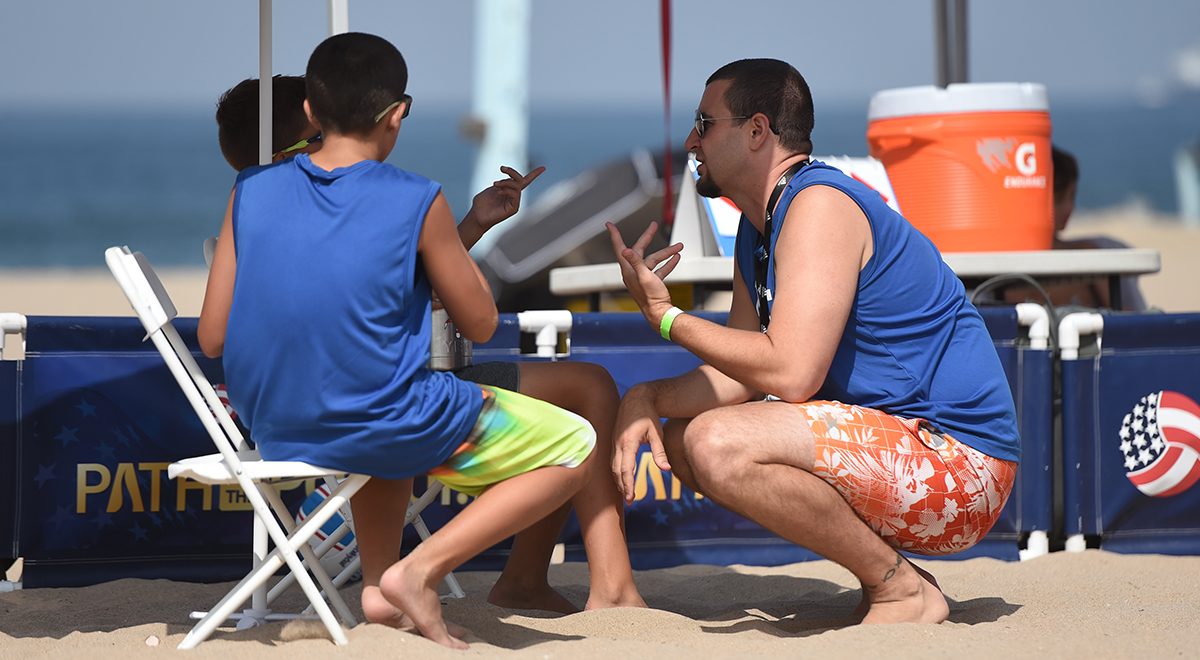
One of the neatest things about being part of a team sport is that there are ideas and principles that go across all sports. Working with the coaching staff and players of the 2020 Olympic gold medalist U.S. Women’s Water Polo Team at my new legacy project, Bison Peak Lodge at Puma Hills, was a wonderful experience.
The fact that seven of their 10-day stay was a silent retreat again highlights the importance of the mental side of sport.
At the same time, hosting the 1980 U.S. Women’s Olympic Volleyball Team while they watched, texted, video messaged and cheered on the 2020 U.S. Women to on their historic first Olympic gold was another great experience of the power of a team that trusts and trains to be the best learners they can be. Congrats to all three U.S. women’s teams – indoor, beach and sitting – for their gold medals in Tokyo. USA Volleyball has a lot to be proud of.
With this cross-pollination of national teams and other team sports, I have continued teaching how to be more effective and efficient in coaching and learning. In the next couple of months, I will be in still-learning mode in Mexico City (along with Doug Beal), the Badger and Arizona Regions, Jamaica, Canada, the United Arab Emirates and Denmark. I promise to share what I learn from participants and fellow clinicians in a future blog. That said, there are two links I would urge you as a learner to look at:
- Hugh McCutcheon, who led the U.S. Men to gold in Beijing 2008 and the U.S. Women to silver in London 2020, gave a TedX talk on Championship Behaviors this summer.
- Cody Kessel (outside hitter for Germany’s Berlin Recycling) and his Curated Collection – #31 on Luck and Gratitude.
I’ve been lucky to also learn from baseball as the coaching staff of a Major League Baseball team has invited me to their book-and-speaker Zoom calls. In these calls, we’ve discussed a must read/get book: Coaching Athletes to Be Their Best, which is about motivational interviewing (MI) in sports.
Like the coaching method of guided discovery shared for decades in IMPACT, MI is all about the communication styles and techniques that help you draw out the wisdom and answers from the players.
It is not a recipe book, yet the team of authors provides dozens of examples and ways to connect with your athletes and help them thrive. They show the research and science behind the material, revealing why conventional ways of giving feedback and addressing conflict are counterproductive. Ownership of personal goals, performance enhancement and improved teamwork is all part of the book.
A sampling of chapter titles gives a lot of insight into why I think this book will help you: Mindset, Method, Skills, Affirming, Rolling with Athlete Resistance to Change, Connecting Rapidly, Making Decisions as a Unit, Coaching in Poor Communities, Connecting and Culture Change. When I was a young coach, I told my players what to do. Now I guide their discoveries with questions like “What did you notice about that spike you just did?” This is part of MI. The book also gives access to quick reference sheets you can use, which makes the implementation and change even easier.
If you want to better enhance your coaching conversations with your players to build relationships and trust, getting this book will be a valuable addition to your coaching, learning, teaching and mentoring toolkit. In the meantime, Happy holidays to all, and thanks for learning and coaching. Your players appreciate it even if they don’t tell you daily…
Editor’s Note: John also recommends the book Legacy by New Zealand men’s rugby head coach James Kerr.
